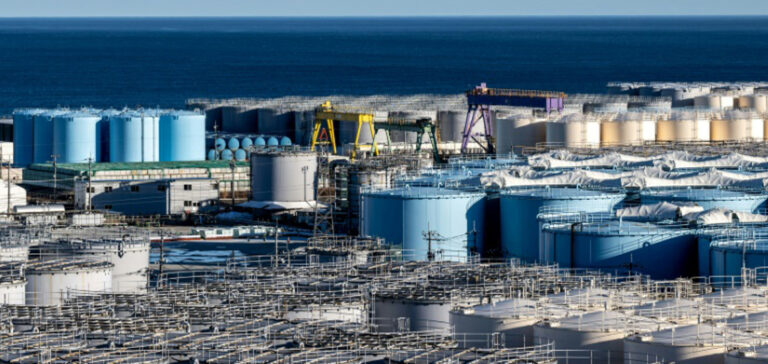The discharge of water from Fukushima is entering its second phase. The event began on Thursday morning, according to operator Tepco, sparking fresh international concern and controversy. The sea dumping, which began in August, provoked strong reactions from China and other neighboring countries. In this article, we take a closer look at this new stage and its implications.
The second phase of the Fukushima sea discharge
The discharge of treated water from Fukushima into the sea began on August 24, 2023, when Japan began discharging into the Pacific Ocean the water used to cool the reactor cores at the Fukushima Daiichi power plant, which had melted down after the 2011 tsunami. This water, which also came from groundwater and rain, had been stored in huge tanks on the plant site and treated to eliminate all radioactive substances except tritium.
International Concerns
The discharge into the sea was validated by the International Atomic Energy Agency, but it triggered a diplomatic crisis between Japan and China, which suspended its imports of Japanese seafood products in response. Russia, too, is considering similar measures in view of the tensions between the two countries.
To minimize the risks, Tepco dilutes the tritiated water extensively with seawater before discharging it into the ocean, so that the level of radioactivity does not exceed the target limit of 1,500 Bq/L. This limit is 40 times lower than the Japanese standard for this type of discharge into the sea, and almost seven times lower than the World Health Organization (WHO) limit for drinking water, which is 10,000 Bq/L.
The Future of Ocean Disposal
The first phase discharged around 7,800 m³ of tritiated water, and Tepco has planned three further similar operations until the end of March 2024. Japan plans to gradually discharge more than 1.3 million m³ of tritiated water from Fukushima into the Pacific Ocean, according to the current schedule, which extends into the early 2050s.
The second phase of the discharge of treated water from Fukushima into the sea continues to generate international controversy. As Japan continues this process, diplomatic concerns and repercussions remain front and center. The future of this operation will be closely monitored, with potential implications for international relations and the marine environment.






















